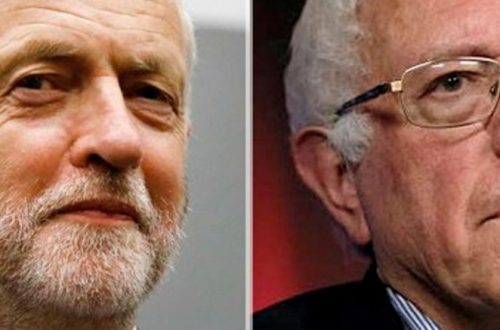Especially the Jews. As President, Nixon seemed to devote an awful lot of time to distrusting and despising them.
The New York Times reports:
Richard M. Nixon made disparaging remarks about Jews, blacks, Italian-Americans and Irish-Americans in a series of extended conversations with top aides and his personal secretary, recorded in the Oval Office 16 months before he resigned as president.
The remarks were contained in 265 hours of recordings, captured by the secret taping system Nixon had installed in the White House and released this week by the Nixon Presidential Library and Museum.
While previous recordings have detailed Nixon’s animosity toward Jews, including those who served in his administration like Henry A. Kissinger, his national security adviser, these tapes suggest an added layer of complexity to Nixon’s feeling. He and his aides seem to make a distinction between Israeli Jews, whom Nixon admired, and American Jews.
In a conversation Feb. 13, 1973, with Charles W. Colson, a senior adviser who had just told Nixon that he had always had “a little prejudice,” Nixon said he was not prejudiced but continued: “I’ve just recognized that, you know, all people have certain traits.”
“The Jews have certain traits,” he said. “The Irish have certain — for example, the Irish can’t drink. What you always have to remember with the Irish is they get mean. Virtually every Irish I’ve known gets mean when he drinks. Particularly the real Irish.”
Nixon continued: “The Italians, of course, those people course don’t have their heads screwed on tight. They are wonderful people, but,” and his voice trailed off.
A moment later, Nixon returned to Jews: “The Jews are just a very aggressive and abrasive and obnoxious personality.”
At another point, in a long and wandering conversation with Rose Mary Woods, his personal secretary, that veered from whom to invite to a state dinner to whether Ms. Woods should get her hair done, Nixon offered sharp skepticism at the views of William P. Rogers, his secretary of state, about the future of black Africans.
“Bill Rogers has got — to his credit it’s a decent feeling — but somewhat sort of a blind spot on the black thing because he’s been in New York,” Nixon said. “He says well, ‘They are coming along, and that after all they are going to strengthen our country in the end because they are strong physically and some of them are smart.’ So forth and so on.
“My own view is I think he’s right if you’re talking in terms of 500 years,” he said. “I think it’s wrong if you’re talking in terms of 50 years. What has to happen is they have be, frankly, inbred. And, you just, that’s the only thing that’s going to do it, Rose.”
Inbred? Do you think he meant interbred? And if so, would he have wanted one of his daughters to marry one?
An indication of Nixon’s complex relationship with Jews came the afternoon Golda Meir, the Israeli prime minister, came to visit on March 1, 1973. The tapes capture Meir offering warm and effusive thanks to Nixon for the way he had treated her and Israel.
But moments after she left, Nixon and Mr. Kissinger were brutally dismissive in response to requests that the United States press the Soviet Union to permit Jews to emigrate and escape persecution there.
“The emigration of Jews from the Soviet Union is not an objective of American foreign policy,” Mr. Kissinger said. “And if they put Jews into gas chambers in the Soviet Union, it is not an American concern. Maybe a humanitarian concern.”
“I know,” Nixon responded. “We can’t blow up the world because of it.”
In his discussion with Ms. Woods, Nixon laid down clear rules about who would be permitted to attend the state dinner for Meir — he called it “the Jewish dinner” — after learning that the White House was being besieged with requests to attend.
“I don’t want any Jew at that dinner who didn’t support us in that campaign,” he said. “Is that clear? No Jew who did not support us.”
Nixon listed many of his top Jewish advisers — among them, Mr. Kissinger and William Safire, who went on to become a columnist at The New York Times — and argued that they shared a common trait, of needing to compensate for an inferiority complex.
“What it is, is it’s the insecurity,” he said. “It’s the latent insecurity. Most Jewish people are insecure. And that’s why they have to prove things.”
Nixon also strongly hinted that his reluctance to even consider amnesty for young Americans who went to Canada to avoid being drafted during the Vietnam War was because, he told Mr. Colson, so many of them were Jewish.
“I didn’t notice many Jewish names coming back from Vietnam on any of those lists; I don’t know how the hell they avoid it,” he said, adding: “If you look at the Canadian-Swedish contingent, they were very disproportionately Jewish. The deserters.”
(Hat tip: Andrew Murphy)


